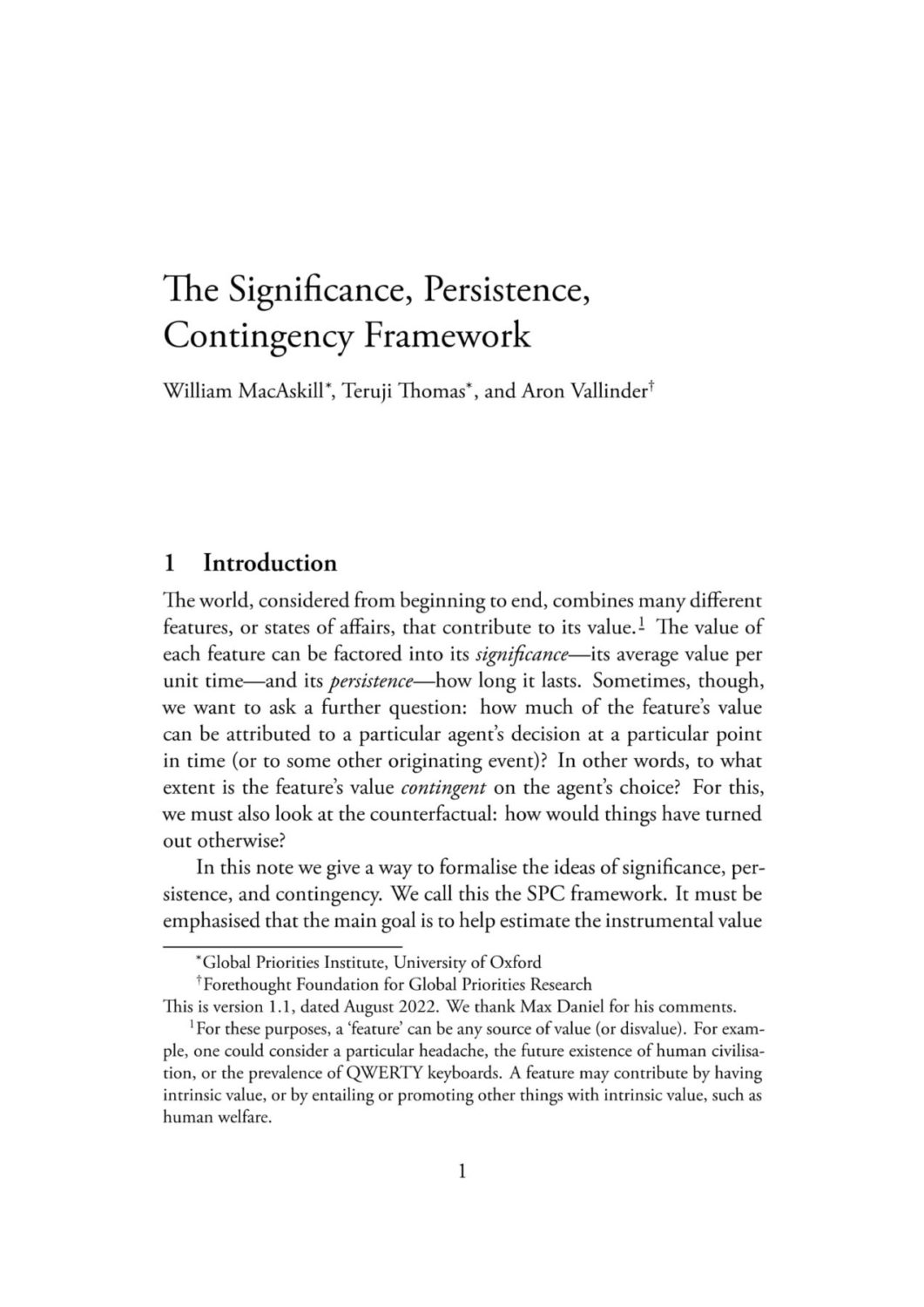The Significance, Persistence, Contingency Framework
William MacAskill, Teruji Thomas (Global Priorities Institute, University of Oxford) and Aron Vallinder (Forethought Foundation for Global Priorities Institute)
GPI Technical Report No. T1-2022
The world, considered from beginning to end, combines many different features, or states of affairs, that contribute to its value. The value of each feature can be factored into its significance—its average value per unit time—and its persistence—how long it lasts. Sometimes, though, we want to ask a further question: how much of the feature’s value can be attributed to a particular agent’s decision at a particular point in time (or to some other originating event)? In other words, to what extent is the feature’s value contingent on the agent’s choice? For this, we must also look at the counterfactual: how would things have turned out otherwise?
Other working papers
The cross-sectional implications of the social discount rate – Maya Eden (Brandeis University)
How should policy discount future returns? The standard approach to this normative question is to ask how much society should care about future generations relative to people alive today. This paper establishes an alternative approach, based on the social desirability of redistributing from the current old to the current young. …
Ethical Consumerism – Philip Trammell (Global Priorities Institute and Department of Economics, University of Oxford)
I study a static production economy in which consumers have not only preferences over their own consumption but also external, or “ethical”, preferences over the supply of each good. Though existing work on the implications of external preferences assumes price-taking, I show that ethical consumers generically prefer not to act even approximately as price-takers. I therefore introduce a near-Nash equilibrium concept that generalizes the near-Nash equilibria found in literature on strategic foundations of general equilibrium…
On two arguments for Fanaticism – Jeffrey Sanford Russell (University of Southern California)
Should we make significant sacrifices to ever-so-slightly lower the chance of extremely bad outcomes, or to ever-so-slightly raise the chance of extremely good outcomes? Fanaticism says yes: for every bad outcome, there is a tiny chance of of extreme disaster that is even worse, and for every good outcome, there is a tiny chance of an enormous good that is even better.

